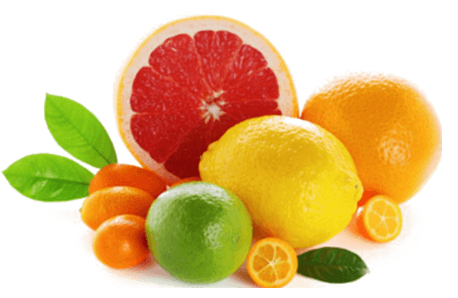Gut health is often referred to as the cornerstone of overall wellness. A healthy gut contributes not only to better digestion but also to improved immunity, mental clarity, and even mood regulation. The intricate balance of bacteria in our digestive system, known as the gut microbiome, plays a crucial role in these processes. Supporting your gut health naturally involves incorporating probiotics, prebiotics, and other gut-friendly practices into your daily routine.
Understanding Your Gut Microbiome
The gut microbiome is a complex community of trillions of microorganisms, including bacteria, viruses, and fungi, that reside in your digestive tract. This microbiome is unique to each individual and influences various aspects of health. Maintaining a diverse and balanced microbiome is key to good gut health.
When your gut is in balance, the beneficial bacteria help digest food, absorb nutrients, and protect against harmful pathogens. However, factors like poor diet, stress, antibiotics, and lack of sleep can disrupt this balance, leading to issues like bloating, indigestion, and weakened immunity.
The Power of Probiotics
Probiotics are live bacteria and yeasts that are beneficial for your digestive system. They are often referred to as "good" or "friendly" bacteria because they help maintain the natural balance of organisms in your intestines.
Benefits of Probiotics:
- Improved Digestion: Probiotics aid in breaking down food, making it easier for your body to absorb essential nutrients.
- Enhanced Immunity: A large portion of your immune system resides in your gut. Probiotics help fortify your gut lining, preventing harmful bacteria from entering your bloodstream.
- Mood Regulation: Emerging research suggests a strong connection between gut health and mental health. Probiotics may help reduce symptoms of anxiety and depression by influencing the gut-brain axis.
Sources of Probiotics: You can boost your intake of probiotics through fermented foods like yogurt, kefir, sauerkraut, kimchi, and kombucha. These foods naturally contain live cultures that can help replenish and diversify your gut bacteria.
The Role of Prebiotics
While probiotics introduce beneficial bacteria to your gut, prebiotics are the food that fuels them. Prebiotics are non-digestible fibers found in certain foods that promote the growth and activity of beneficial bacteria.
Benefits of Prebiotics:
- Supports Gut Flora: Prebiotics feed the good bacteria in your gut, helping them thrive and outcompete harmful bacteria.
- Improves Digestion: By fostering a healthy microbiome, prebiotics help regulate bowel movements and reduce the risk of digestive disorders like IBS (Irritable Bowel Syndrome).
- Boosts Mineral Absorption: Prebiotics enhance the absorption of minerals such as calcium, which is essential for bone health.
Sources of Prebiotics: Foods rich in prebiotics include garlic, onions, leeks, asparagus, bananas, and whole grains like oats and barley. Incorporating these into your diet can naturally support your gut health.
Supplementing for Gut Health
While it’s always best to get your nutrients from natural food sources, supplementation can be a helpful addition, especially if your diet is lacking or if you're dealing with specific health issues. Supplements can provide a concentrated dose of probiotics, prebiotics, and other nutrients that might be challenging to get consistently from diet alone.
For those who may not regularly consume enough fermented foods or prebiotic-rich plants, high-quality supplements can fill the gap. Whether you’re looking to boost your probiotic intake or need a reliable source of prebiotics, supplements offer a convenient solution to ensure your gut is getting the support it needs.
Additional Gut-Friendly Practices
Beyond probiotics and prebiotics, several other lifestyle choices can support your gut health:
-
Eat a Fiber-Rich Diet: Dietary fiber is essential for digestive health. It adds bulk to your stool, making it easier to pass and preventing constipation. High-fiber foods include fruits, vegetables, legumes, and whole grains.
-
Stay Hydrated: Drinking plenty of water is crucial for digestion. Water helps break down food, absorb nutrients, and eliminate waste efficiently.
-
Manage Stress: Chronic stress can negatively impact your gut by altering the gut microbiome and increasing inflammation. Practices like meditation, deep breathing exercises, and yoga can help reduce stress levels.
-
Get Enough Sleep: Poor sleep can disrupt the balance of bacteria in your gut. Aim for 7-9 hours of quality sleep per night to support both your gut and overall health.
-
Limit Processed Foods and Sugars: High-sugar diets can feed harmful bacteria in the gut, leading to an imbalance. Focus on whole, unprocessed foods to maintain a healthy gut environment.
Conclusion: Trust Your Gut
Your gut is at the core of your overall well-being, influencing everything from digestion to mental health. By incorporating probiotics, prebiotics, and other gut-friendly habits into your routine, you can naturally support your gut health and, in turn, your entire body. While natural food sources are ideal, supplements can provide an effective way to ensure you’re meeting your gut health needs, especially when dietary limitations make it difficult.
Take Action Today: Start by adding a few probiotic-rich foods to your diet, explore prebiotic options, and make simple lifestyle changes to promote a balanced and healthy gut. Your body will thank you for it!

Log In